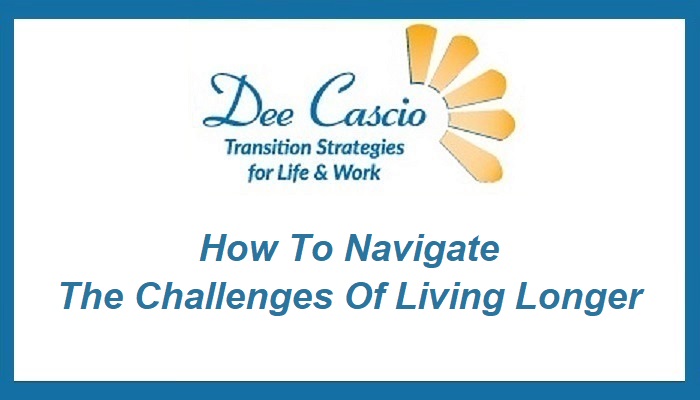Our grandparents didn’t think about the challenges of living longer but, because of all the medical advances over the last fifty years, we have the wonderful gift of longevity. Life expectancy in the early 1900s was forty-seven years. A person born today can expect a life expectancy of seventy-nine years. For boomers between the ages of fifty-five and sixty-five, our life expectancy is in the low eighties. By any reasonable standard, we’ve come a long way!
Of course, this longevity depends on a number of factors. Surprisingly, genetics only counts for about 10%, while the other factors are a function of lifestyle, the nature of the work you do, and whether you are male or female. This is based on research done by Dan Buettner who studied areas of the world with the highest percentage of centenarians. You might want to explore his fascinating work about Blue Zones.
What are the challenges of living longer for our boomer generation? Some of us will ultimately be faced with illnesses or handicaps that will affect our retirement lifestyle. Have you considered how your retirement might be affected by yours or your spouse’s future medical needs?
Traditional wedding vows say, “We will be true to each other in sickness and in health.” I expounded upon this in “Togetherness in retirement: for better or worse not for lunch.” While you and your partner will remain the same people, there may be future medical challenges neither of you anticipated. Facing these kinds of unknown situations requires a lot of compassion and empathy because it could happen to any of us. The bottom line is that it is possible to have a full and enjoyable lifestyle even if we have to deal with life’s medical challenges.
I know of a number of couples where one or the other is dealing with cancer, MS, Lupus, Alzheimer’s disease, muscular degenerative diseases, or orthopedic disabilities. For the most part, these individuals and their partners manage these illnesses with heart, a positive attitude, and a willingness to make accommodations personally and for each other.
Many of us would rather not have to think about the possibility of dealing with a medical disability for ourselves or our partner. However, at this point in the planning process, it’s important to be realistic about life’s uncertainties. Plan ahead as much as possible but make sure you have a good support system in place. Are there family members and friends close by and available to help? What home care services are available to fill in when a friend or family member isn’t available? If you belong to a church, will you be able to reach out for support from some of the active church members?
Remember that whether you are raising children, taking care of aging parents, or just navigating your own aging process, it takes a village. Make sure that you have built a strong and cohesive “village” to support you now and in the future. Do as much as you can to stay healthy, active, and engaged in life no matter what your situation is. This will pay dividends in the future as you navigate the challenges of living longer.
